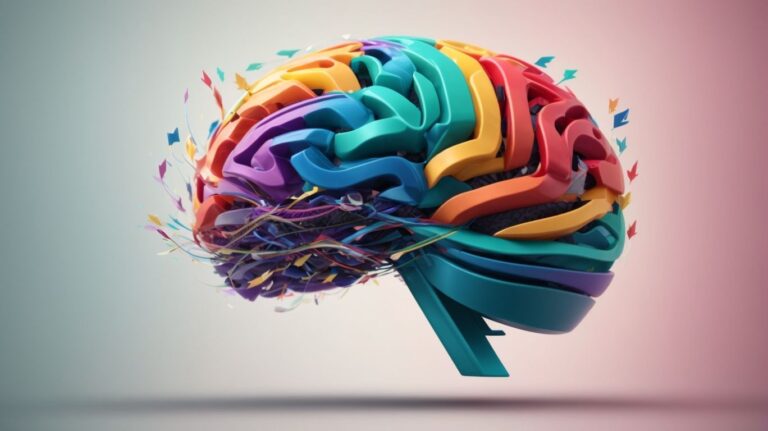Have you ever wondered how personal development and psychology are intertwined? In this article, we will delve into the connection between the two and explore the psychological factors that influence personal growth.
We will also discuss the different approaches to personal development, such as the humanistic, behaviorist, and cognitive approaches, and how they can benefit individuals. We will look at the ways in which integrating personal development and psychology can lead to increased self-awareness, improved coping mechanisms, and enhanced emotional intelligence.
Additionally, we will provide practical tips on how to incorporate personal development and psychology into your life. Join us as we uncover the fascinating relationship between personal growth and psychology.
Contents
- 1 Key Takeaways:
- 2 What Is Personal Development?
- 3 What Is Psychology?
- 4 How Are Personal Development and Psychology Related?
- 5 What Are the Different Approaches to Personal Development?
- 6 What Are the Benefits of Integrating Personal Development and Psychology?
- 7 How Can One Incorporate Personal Development and Psychology in Their Life?
- 8 Frequently Asked Questions
- 8.1 What is the connection between personal development and psychology?
- 8.2 How can psychology help with personal development?
- 8.3 What are some examples of personal development techniques rooted in psychology?
- 8.4 How does personal development affect one’s mental health?
- 8.5 What are the benefits of exploring the link between personal development and psychology?
- 8.6 Can personal development and psychology be applied to different areas of life?
Key Takeaways:
- Personal development and psychology are closely linked and can greatly benefit one’s mental health and overall well-being.
- Integrating personal development and psychology can lead to increased self-awareness, improved coping mechanisms, and enhanced emotional intelligence.
- One can incorporate personal development and psychology in their life by seeking professional help, practicing self-reflection, and setting personal development goals.
What Is Personal Development?
Personal development encompasses the continuous process of self-improvement, aimed at enhancing one’s understanding of beliefs, engaging in various activities, and gaining valuable insights into one’s capabilities and potential.
Personal development involves cultivating self-awareness and developing a growth mindset to adapt to challenges and evolve positively. This multifaceted journey encompasses refining interpersonal skills, setting and achieving personal goals, and striving for overall well-being.
Through personal development, individuals can enable themselves to embrace change, overcome obstacles, and foster a sense of purpose. This can have a positive impact on various aspects of their lives, including career, relationships, and mental health.
What Is Psychology?
Psychology is the scientific study of human behavior, encompassing various aspects such as emotional intelligence, career development, and mental well-being, with applications in therapy and counseling.
Understanding human behavior forms the crux of psychology, diving into the intricate workings of the mind and its impact on actions and decisions.
Through extensive research, analysis, and empirical studies, psychology seeks to unravel the complexities of the human psyche, shedding light on issues such as anxiety, depression, stress management, and substance abuse.
Its applications extend to diverse realms, including organizational psychology for enhancing workplace dynamics, educational psychology for optimizing learning processes, and clinical psychology for addressing mental health concerns.
How Are Personal Development and Psychology Related?
The relationship between personal development and psychology is rooted in the exploration of individual beliefs, the pursuit of personal goals, and the overcoming of psychological challenges, demonstrating the interplay between internal growth and the understanding of human behavior.
Personal development and psychology share a common ground in fostering self-awareness and understanding the cognitive and emotional processes that drive human behavior.
Personal development seeks to enhance and maximize an individual’s potential, while psychology delves into the complexities of the mind, emotions, and behavior patterns.
Integrating aspects from psychology into personal development helps individuals confront and address underlying mental and emotional barriers that may hinder progress.
This symbiotic relationship fosters a holistic approach to growth, emphasizing the importance of self-reflection, resilience, and adaptive coping mechanisms in the pursuit of personal well-being.
What Are the Psychological Factors That Influence Personal Development?
The process of personal development is significantly influenced by various psychological factors, including individual beliefs, behaviors, and the level of self-awareness, shaping the trajectory of personal growth and transformation.
Self-awareness plays a crucial role in personal development as it involves recognizing one’s own emotions, strengths, weaknesses, and values. It allows individuals to make conscious choices, understand their thought patterns, and adapt to changes.
Beliefs can act as powerful motivators or deterrents, influencing one’s perception of themselves and their capabilities.
Similarly, behaviors, whether positive or negative, contribute to the overall progress towards personal development goals, impacting relationships, productivity, and overall well-being.
How Can Personal Development Improve Mental Health?
Personal development plays a vital role in improving mental health by fostering strategies for self-understanding, breaking down barriers to growth, and enhancing the overall psychological well-being of individuals.
Engaging in personal development activities such as meditation, journaling, and therapy can help individuals gain insight into their emotions, thoughts, and behaviors, leading to better self-awareness and emotional regulation.
Additionally, setting achievable goals and persistently striving towards them is an essential aspect of personal development. This cultivates a sense of purpose and accomplishment, contributing to a positive mindset and overall mental well-being.
What Are the Different Approaches to Personal Development?
Personal development encompasses diverse approaches, including the humanistic, behaviorist, and cognitive paradigms, each offering unique perspectives and methodologies for fostering individual growth and self-improvement.
The humanistic approach to personal development emphasizes self-actualization, personal responsibility, and the importance of a positive self-concept. It focuses on understanding and fulfilling one’s potential to lead a fulfilling life.
In contrast, behaviorist paradigms highlight the influence of the environment and external stimuli in shaping behaviors. They emphasize conditioning and reinforcement as tools for personal change.
The cognitive paradigm explores the role of thoughts, beliefs, and perceptions in shaping behavior and emotions. It emphasizes the power of cognitive restructuring and self-reflection in personal growth.
Humanistic Approach
The humanistic approach to personal development emphasizes self-awareness, the realization of individual growth potential, and the cultivation of an environment that nurtures personal well-being and fulfillment.
This approach focuses on the unique qualities of each individual, recognizing their human potential and the intrinsic value they possess. It encourages individuals to engage in introspection, fostering a deeper understanding of their emotions, thoughts, and behaviors.
Through this process of self-exploration, individuals gain insights into their strengths and areas for growth, promoting holistic development. The humanistic approach values the interconnectedness of the mind, body, and spirit, aiming to create a balance that supports overall well-being.
Behaviorist Approach
The behaviorist approach in personal development centers on understanding and modifying behaviors through conditioning, habit formation, and the reinforcement of positive changes, aiming to foster constructive personal growth and development.
Conditioning, a key aspect of the behaviorist approach, involves the process of learning and reinforcing certain behaviors through repeated exposure to specific stimuli and responses. This technique emphasizes the role of environmental factors in shaping an individual’s actions and reactions.
Habit formation further complements this approach, focusing on the establishment of repetitive actions that become ingrained in one’s routine and character.
By consistently reinforcing positive changes, individuals can cultivate lifelong habits that contribute to their personal development.
The behaviorist approach accentuates the significance of external influences and the power of reinforcement in molding behavior and fostering self-improvement.
Cognitive Approach
The cognitive approach to personal development revolves around the examination and transformation of individual beliefs, mindset, and thought patterns, aiming to cultivate positive cognitive frameworks and enhance personal well-being.
By focusing on the cognitive approach in personal development, individuals can explore the impact of their thoughts, emotions, and behaviors on their overall well-being.
This approach emphasizes the interconnectedness of beliefs, mindset, and thought patterns with personal growth and development. Through mindset restructuring and the cultivation of positive thought patterns, individuals can reframe their perspectives and foster a more enabling mindset.
The examination and restructuring of beliefs are pivotal in this approach, as they form the foundation of one’s cognitive frameworks and significantly influence personal well-being.
What Are the Benefits of Integrating Personal Development and Psychology?
The integration of personal development and psychology yields numerous benefits, including heightened self-awareness, improved coping mechanisms, and the development of enhanced emotional intelligence, enhancing overall well-being and personal growth.
Personal development, when complemented with psychology, provides individuals with the tools to gain a deeper understanding of their thoughts, feelings, and behaviors. This fosters a sense of self-awareness that facilitates meaningful personal growth.
This integration equips individuals with enhanced coping mechanisms to effectively manage life’s challenges and adversities.
It also contributes to resilience and mental well-being. The insights gained from psychological principles cultivate emotional intelligence, which is instrumental in navigating social interactions and forming meaningful relationships.
Increased Self-Awareness
The integration of personal development and psychology fosters increased self-awareness, providing individuals with valuable insights into their beliefs, behaviors, and overall psychological well-being, facilitating profound personal growth.
By exploring the depths of their mind and emotions, individuals can gain a clearer understanding of their thought patterns and emotional responses, leading to a more conscious and deliberate approach to life.
Through the examination of beliefs and values, people can identify and address limiting beliefs that may be hindering their personal and professional development.
This integration also encourages individuals to confront their fears and insecurities, allowing them to cultivate resilience and enhance their mental and emotional well-being.
It promotes the development of effective coping strategies for managing stress and adversity, leading to greater psychological resilience and a stronger sense of self-efficacy.
Integrating personal development and psychology enables individuals to recognize and embrace their strengths and weaknesses, fostering a deeper level of self-acceptance and self-compassion.
This, in turn, nurtures a more positive self-concept and enhances overall mental health and well-being.
Improved Coping Mechanisms
The synergy of personal development and psychology contributes to the enhancement of coping mechanisms, equipping individuals with effective strategies to address challenges, barriers, and adversities, fostering resilience and adaptive growth.
Personal development and psychology intertwine to provide individuals with a comprehensive toolkit for navigating life’s obstacles.
By diving into personal strengths, weaknesses, and emotional intelligence, individuals can cultivate a deeper understanding of themselves and others, thus enabling them to face challenges with a more balanced approach.
Through this integration, individuals can also develop coping strategies, such as mindfulness and cognitive reframing, to better manage stress and adversity.
Psychology, in combination with personal development, emphasizes the importance of self-awareness and self-regulation, enabling individuals to build the capacity to adapt to difficult circumstances and cultivate a positive mindset.
This integrated approach also encourages individuals to seek support, whether through social connections, therapy, or self-help resources, fostering a holistic framework for coping and growth. By prioritizing self-care and personal growth, individuals can enhance their mental well-being and overall resilience.
Enhanced Emotional Intelligence
The amalgamation of personal development and psychology results in the enhancement of emotional intelligence, enableing individuals with heightened self-awareness, adaptive behaviors, and effective management of emotions, contributing to overall well-being.
Through the integration of personal development and psychology, individuals acquire a deeper understanding of their own emotions and those of others, leading to increased empathy and emotional regulation.
This process involves recognizing and understanding one’s own emotional state and its impact on thoughts and behavior.
As individuals delve into the complex web of their emotions, they also cultivate adaptability and the ability to navigate challenging situations with resilience.
This heightened self-awareness and adaptability are instrumental in fostering healthy interpersonal relationships and social connections, crucial for overall fulfillment and success.
Better Understanding of Personal Motivations
The convergence of personal development and psychology enables a better understanding of personal motivations, elucidating the underlying goals, aspirations, and driving forces that propel individual growth and progress.
Intertwining the principles of personal development with insights from psychology can deepen an individual’s understanding of their intrinsic motivations. This integration allows for an exploration of various factors, such as values, beliefs, and experiences, that shape one’s aspirations.
By shedding light on the catalysts for personal growth, such as resilience, flexibility, and adaptability, this approach provides a more comprehensive understanding of the interconnected nature of personal development and psychology.
How Can One Incorporate Personal Development and Psychology in Their Life?
Incorporating personal development and psychology into one’s life involves seeking professional help, engaging in self-reflection, and setting thoughtful personal development goals, facilitating a holistic approach to self-improvement and psychological well-being.
Seeking professional help can provide valuable insights and customized strategies for addressing personal challenges and fostering growth.
Engaging in self-reflection allows individuals to gain a deeper understanding of their thoughts, emotions, and behavior patterns, leading to increased self-awareness and personal insight.
Setting personal development goals helps to create a roadmap for progress and achievement, guiding individuals towards meaningful and fulfilling outcomes.
By integrating these practices into daily life, individuals can cultivate a greater sense of self-mastery, resilience, and overall well-being.
Seek Professional Help
Seeking professional help is a crucial step in the incorporation of personal development and psychology, offering valuable insights, therapeutic strategies, and personalized guidance for addressing individual growth and well-being.
Professional help provides access to trained therapists and advisors who can offer personalized insights based on an individual’s unique background and experiences.
These professionals help individuals navigate through challenges, understand their emotions, and develop effective coping mechanisms.
Moreover, therapy sessions facilitate the exploration of underlying issues and pave the way for self-discovery.
The integration of psychology equips individuals with a deeper understanding of their thoughts, behaviors, and personal dynamics, resulting in enhanced emotional resilience and well-being.
Practice Self-Reflection
Engaging in regular self-reflection is a fundamental method for integrating personal development and psychology, promoting self-awareness, gaining valuable insights, and fostering continuous personal growth and improvement.
Self-reflection involves a deliberate, conscious examination of one’s thoughts, feelings, and experiences. By exploring our inner world, we enhance self-awareness and develop a deeper understanding of our emotions, motivations, and behaviors.
This process enables individuals to identify areas for personal improvement and transformation, paving the way for meaningful growth and enhanced well-being.
Self-reflection also plays a pivotal role in psychology, offering individuals an opportunity to process past experiences, recognize patterns, and cultivate resilience through introspective exploration.
Set Personal Development Goals
Setting meaningful personal development goals is an essential aspect of incorporating personal development and psychology, providing a roadmap for self-improvement, the implementation of strategies, and the engagement in purposeful growth activities.
Setting clear and well-defined goals is crucial for aligning actions with aspirations and achieving a sense of direction. This process involves self-reflection and introspection to identify areas for improvement.
It also incorporates concepts from psychology to understand behavior, motivation, and habits, laying the foundation for setting realistic and achievable objectives.
Frequently Asked Questions
What is the connection between personal development and psychology?
The connection between personal development and psychology lies in the fact that personal development focuses on improving oneself, while psychology is the study of the human mind and behavior. Personal development draws heavily on psychological theories and practices to guide individuals towards self-improvement.
How can psychology help with personal development?
Psychology can help with personal development by providing insights into human behavior and thought patterns. By understanding these patterns, individuals can identify areas for improvement and use psychological techniques to make positive changes in their lives.
What are some examples of personal development techniques rooted in psychology?
Some examples include cognitive-behavioral therapy, which helps individuals change negative thought patterns, and positive reinforcement, which encourages the repetition of desired behaviors. Other techniques include visualization, mindfulness, and reframing negative thoughts.
How does personal development affect one’s mental health?
Personal development can have a positive impact on mental health by promoting self-awareness, self-acceptance, and self-care. It can also help individuals develop coping mechanisms and improve their overall well-being.
What are the benefits of exploring the link between personal development and psychology?
Exploring the link between personal development and psychology can lead to a better understanding of oneself and others, improved relationships, increased self-esteem and confidence, and overall personal growth and fulfillment.
Can personal development and psychology be applied to different areas of life?
Yes, personal development and psychology can be applied to various areas of life, including career, relationships, and personal goals. The principles and techniques used in personal development can be adapted to suit individual needs and can lead to positive changes in all aspects of life.




